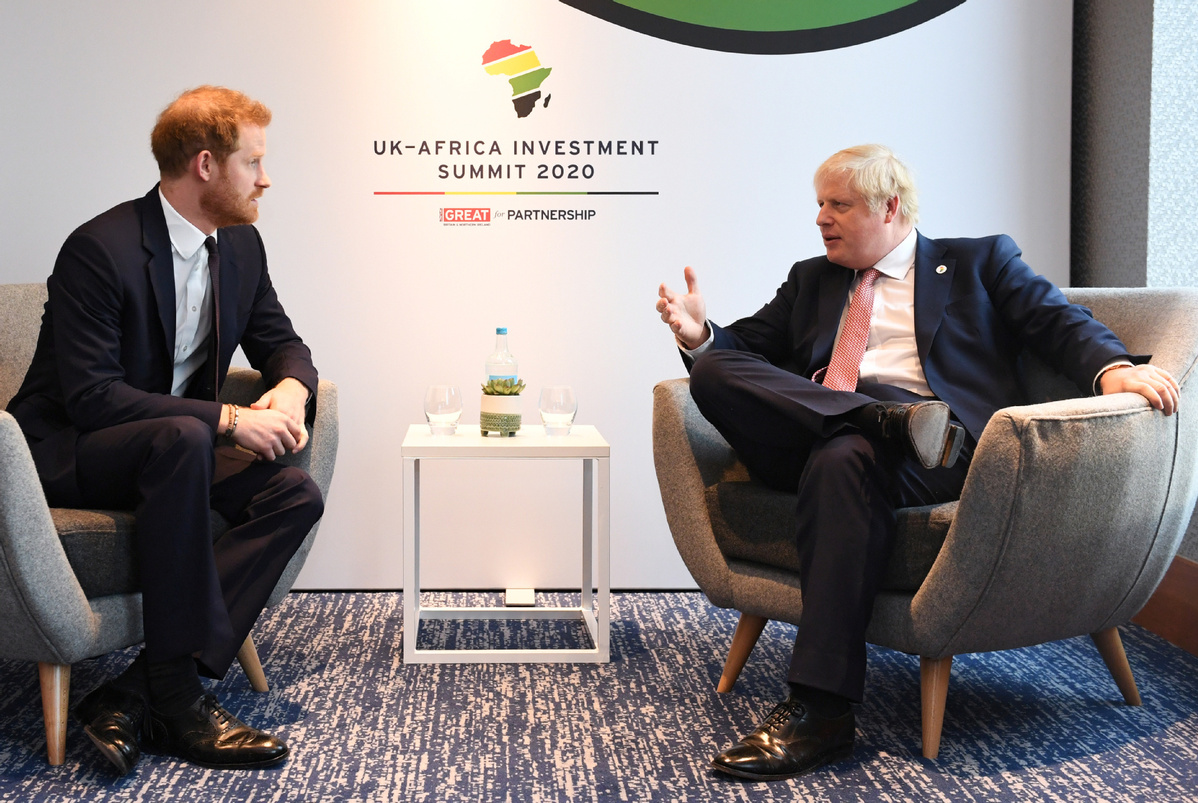Harry's departure could do Britain's royal family a favor

The British have always had an ambivalent relationship with their kings and queens. In 1649, after much soul-searching, the English Parliament chopped the monarch's head off .

Charles I had believed he was on the throne by the grace of God, while Parliament argued he was subject to the will of the people. His execution settled the matter once and for all and, when his son was restored to the throne a decade later, it was as a constitutional monarch.
And thus it has remained for the past three-and-a-half centuries, despite occasional disruptions caused by scandal, social change, dynastic disruption and even one case of temporary madness.
The present furore over the decision of Queen Elizabeth's grandson Prince Harry and his wife Meghan to withdraw from royal duties is among the more minor crises that the British monarchy has had to face. Yet it has provided the latest opportunity to revive a debate over whether the institution can survive in the 21st century.
Monarchy, constitutional or otherwise, is an anachronism based on the magical thinking that the authority of a head of state can pass from one generation to the next of a single family.
The British people, who at least until the Brexit drama could boast of their pragmatism, accepted monarchy because it sort of worked. The existence of a totally neutral figurehead, who wielded authority but no actual power, was regarded as a check on overweening politicians and a symbol of national unity among political divisions.
The current debate over whether the monarchy can survive the Harry-Meghan crisis, which is in its own way almost as divisive as the argument over the UK's role in Europe caused by Brexit, is really nothing new.
Although the 93-year-old queen enjoys near-universal respect for a lifetime of public service, it is less than three decades since a poll showed three out of four Britons believed the royal family was falling apart.
Famously, the queen herself described 1992, a year of scandals including the break-up of the marriage of her son and heir Charles and Princess Diana, as her annus horribilis-h(huán)er horrible year.
The mawkish outpouring of grief that seemed to afflict much of the population at the time of Diana's death five years later sparked criticism that Elizabeth was insensitive. Once again, the future of the monarchy seemed to be on the line.
At the start of her reign as queen in 1952, the young Elizabeth had responded to post-war apathy toward the monarchy by opening up the previously aloof royal family to greater public scrutiny.
Her great-great-grandmother Queen Victoria had faced a similar challenge after retreating from public life after the death of her husband, Albert. The British people began to complain about Victoria's absence and to question her role until she was gradually coaxed back into the public gaze.
Elizabeth's tactic, however, proved to be a double-edged sword. It made the ruling House of Windsor more human but it also exposed its members to the arbitrary judgments of the general public.
The popular press and much of the public act now as if they have an intimate understanding of the motivations and desires of every individual royal as if they were members of their own family. The female royals are particularly exposed to scrutiny, whether it is over their level of dedication to their royal role or the length of their hemlines.
The British print media has been accused of contributing to undermining the royal family by its obsessive coverage, an element that apparently drives sales in a dwindling market. But once again, this is nothing new.
In the golden age of Georgian satire in the early 19th century, the royal family was savaged in scurrilous and near-obscene caricatures that would not pass the good-taste test of any modern publication.
If history is anything to go by, the current furore will no doubt die down and the monarchy will survive, at least in the short term, largely through inertia. Post-Brexit, no-one is in a hurry to put any more nationally divisive issues, such as the future of the royals, to the people.
Apart from diehard republicans, most Britons do not obsess about replacing their constitutional monarchy with a presidential system. Anti-royal feeling is focused less on Elizabeth and her constitutional role than it is on the privileges and expenditure of royals lower down the pecking order.
Prince Harry's role was as a "spare", a second heir to the throne should his older brother William not survive. With the birth of William's children, Harry has dropped down to sixth in the order of succession. It is probably safe for him to go his own way.
Maybe his decision will start a trend. While the British people are not yet marching in the streets for an end to monarchy, a slimmed-down system that marginalized the lesser members of such a privileged family might have a greater chance of survival in the years to come.
Harvey Morris is a senior media consultant for China Daily UK

































